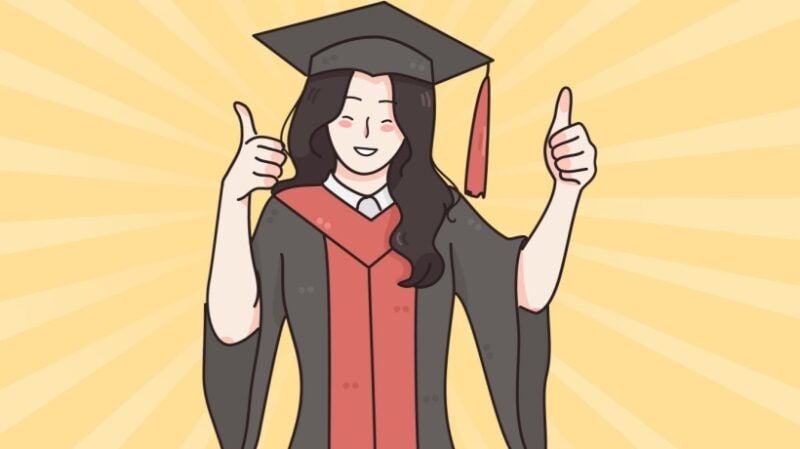
eLearning Vs. Traditional Education: Who Succeeds More?
In recent years, there has been a rise in online education and online learning schools. Due to technological advancements and the COVID-19 pandemic, many students have turned to virtual classrooms and online education to earn their degrees. From short courses to full degrees, online education has provided accessibility to students and made life so much easier. However, one important question arises: are students graduating from online learning schools less successful than those who take physical classes? In this article, we will discuss the academic performance of students in eLearning vs. traditional education. We shall also discuss employment success and skill development, which can differ between the two groups.
How Is Online Education Helping Students?
For students who are short on time and would have to deal with vast distances, online education can be a viable option. Universities like Harvard, MIT, and Stanford offer online courses and degrees for students wishing to extend their education while working. There is also a wide range of education platforms like Coursera, edX, and Udemy, giving students an opportunity to engage with online educators for learning and assistance with coursework material.
Even the employment of academic writing help services, such as essay writing services, to assist students with assignments, essays, and homework shows that students are not as reliant on traditional means of education for their studies. While online education is a growing trend among professionals and learners, it is still deemed a questionable option due to uncertainties about its effectiveness and long-term value.
Academic Performance
Many other reports suggest that students in online programs can perform better than those in traditional classrooms. The factor to remember is discipline, as online education requires students to meet deadlines, submit assignments, and stay active and motivated without a physical classroom.
Without reminders and daily notes, students have to hold themselves accountable for their studies. However, those students who lack self-discipline would definitely struggle more in virtual classrooms, which can impact their academic success and grades.
Employment Success
Another issue could be a difference in the number of successful jobs gained by online students and those in traditional settings. One factor to keep in mind is that employer opinion plays a meaningful role in job searches after graduation. The perception of online degrees has been weak in terms of credibility, and this is beginning to change. Hence, the improving quality and recognition of online programs continue to close the gap.
Social Interaction And Networking
Social learning and networking are the most unappreciated aspects of school life and physical classes. Campus life allows students to meet new people, engage with professors, join clubs, and participate in discussions. All of these experiences help them develop skills like communication, critical thinking, emotional intelligence, and public speaking.
Even though online students miss out on these experiences, they can still engage with peers and their teachers through group assignments, presentations, and online forums. However, we must remember that the level of interaction can be limited as compared to physical experiences. Hence, this networking gap can be a minor inconvenience for students in online classrooms in comparison to those in physical classrooms.
Skills Development
Certain industries, such as healthcare, engineering, and natural sciences, prefer graduates from physical programs due to their experience in labs, practical research, and internships. However, disciplines like tech, business, and communication often accept students who have worthy online degrees and experiences.
While grades alone cannot measure the success of a student or graduate, physical classes offer learning experiences, group projects, labs, and internships that online education has yet to match. Hence, employers prefer students that have applied their degree skills and knowledge in real-world settings. However, online education also provides students with important twenty-first-century skills, such as digital literacy, communication, computer skills, and virtual understanding that are becoming important in remote and hybrid work environments.
Quality Of Education
Not all online schools and universities are the same. One should not forget that the credibility and validity of an institution matter. Many schools have rigorous standards, ensuring that their online and physical degrees follow the same curriculum and offer the same credentials. But some schools, especially diploma mills, offer low-quality programs with little value in the market.
Hence, the success of a student depends on the quality and accreditation of the online program and school. This is why students and learners must carefully choose universities that provide online programs and degrees with a consistent curriculum and faculty.
Final Thoughts: eLearning Vs. Traditional Education
So, if you are still thinking whether students graduating from online schools are less successful than those who take physical classes, then the answer is no. The success of a student depends on their self-motivation, discipline, field of study, quality of program, level of curriculum, a student’s goals, and the reputation of the university or school.
Both formats have their strengths and weaknesses, but what matters most is a student’s seriousness about their professional and career goals. Moreover, students can take help from online resources. Last, we recommend choosing wisely between physical and online classroom environments to opt for one that suits your learning style and future career goals.